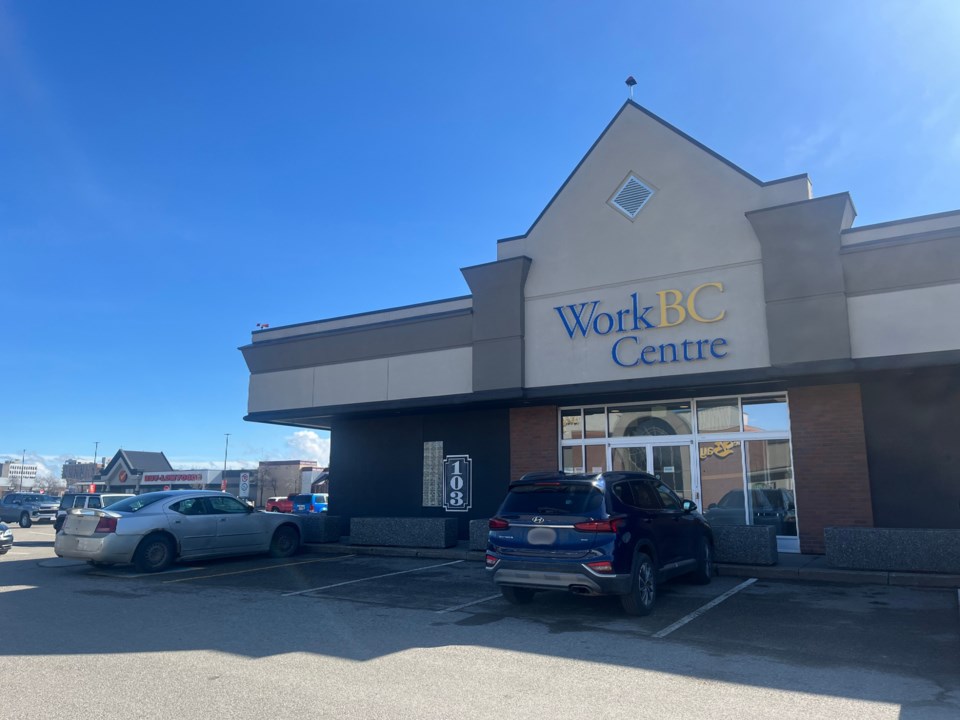One of the most important — and simultaneously most stressful — times in a person's life can be their first job hunt.
With young people facing economic uncertainty and a turbulent job market, this issue has become more pronounced in Prince George.
Social media posts from young job seekers looking for employment or advice have been appearing more frequently, especially on the Prince George Reddit page and various local Facebook groups.
Many of these job seekers are fresh out of high school or post-secondary education and are having difficulty finding new employment.
These job seekers cite common issues such as a lack of callbacks or responses to resumes, a lack of job postings in their field and frequent interviews without follow-ups from potential employers.
The Citizen reached out to Ken Newell, operations manager at Kopar Administration, for advice he would give young people looking for work in Prince George.
“Make sure you’re targeting your resume to the jobs you're applying for,” said Newell. “I highly recommend that individuals write resumes and cover letters that are specific to the employer. A lot of times, we'll write a resume and then blanket Prince George with it, getting no response. You want to make sure that each resume you create is distinct and tailored to the employer. There might not be a lot of changes from one resume to another, but they can be subtle, and those details can be important to a potential employer.”
Newell also recommends that young job seekers view applying for a job as a form of marketing. He suggests that job hunters keep their marketing materials up to date and learn how to "sell" themselves.
He also advises that applicants specifically request an interview in their cover letter. This addition, he said, can go a long way in getting noticed and securing a foot in the door.
Kopar also offers youth programs that can help with employment, such as their Jump on Board program. Additionally, Kopar offers Keys BC, a wage subsidy program for employers. This means youth participants can get noticed and hired by interested employers through Kopar.
In his interview with The Citizen, Newell explained why job seekers might have difficulty finding work.
“What we're seeing is a lack of marketing of clients,” said Newell. “As requirements and costs increase for employers, they begin asking for more. So it becomes important for youth to really market their skills and abilities. Even if they haven’t had much work experience — or any at all — there are still things they’ve done in the past, and they need to make sure they’re highlighting that on their resume.”
Bev Schwarz, regional manager of WorkBC, added that her organization can be especially helpful for those struggling to find work.
“A lot of people think that we just help people find work, but we offer a lot more services than that,” said Schwarz. “We can assist with career exploration, job search help, and financial supports if you're starting a job. We call those jobs so we can help with things like work clothing, tickets, etc. We also offer work experience placements and can provide funding for training. If you want to go to post-secondary school, we offer free funding — it’s not a loan. You can receive up to $7,500 for a one-year program.
That program can be used to learn a skill.
"This is especially helpful for those coming out of high school who want to pursue a trade," Schwarz said. "The first schooling you do for a trade is called the Foundations Program. That's your first one-year program. We can pay for that and help you get your foot in the door.”
Schwarz also provided a list of businesses that often offer entry-level positions:
- Hospitality (restaurants, hotels)
- Retail (cashiers, sales)
- General labour (warehouses, construction)
She also suggested that all job seekers arrive early to interviews, research the organization they're applying to and prepare questions for the interviewer ahead of time.
When discussing barriers faced by young job seekers, Schwarz told The Citizen that many businesses are less willing to give people with limited experience a chance.
“I think some of the barriers, which are no fault of their own, are the lack of work experience and life experience,” said Schwarz. “They're young and just starting out. They need an employer who's willing to give them a break and let them gain some work experience and develop skills."
Education is also crucial.
"Another barrier is a lack of education or certificates," Schwarz said. "Employers today want at least a Grade 12 diploma. They expect young workers to have that. It always comes back to a lack of life experience and skills. They’re just starting, so they need someone willing to give them that break to help them gain those skills.”
WorkBC is funded by the Government of Canada and the province of British Columbia.



